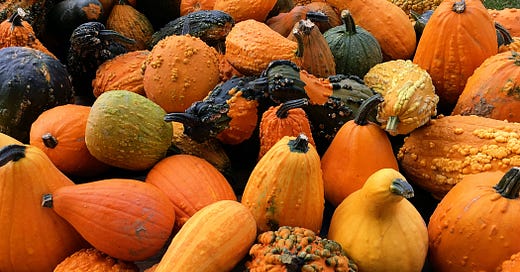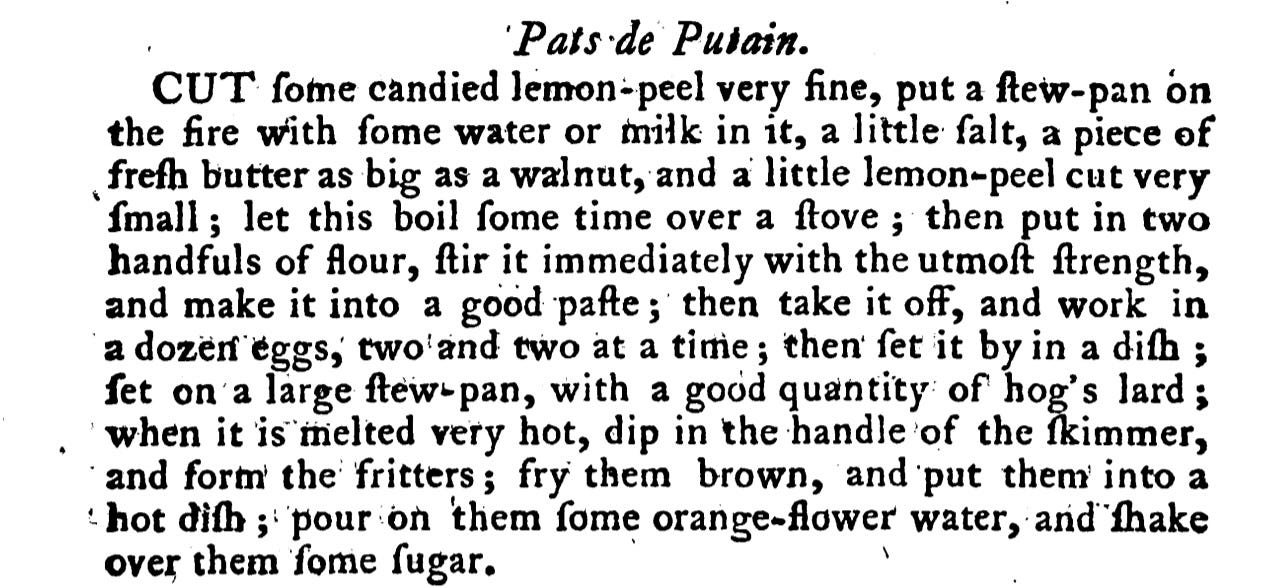From Equinox Soup to Pats de Putain
Via Autumn Foods, Bangles, The Science of Comfort Food, The Perils of Hospitality and the Swoons
Dearest Gentle Reader,
Saturday was the Autumn Equinox, well around here anyway, and the weather has turned substantially cooler and definitely more blustery. The morning and evening light has changed to that gorgeous Autumn gold which makes everything appear more mystical and soup is firmly back on the menu. In fact I made Italian Lentil soup on the Autumn Equinox itself and thoroughly indulged myself by writing a menu full of Autumnal favourites including yet another spicy chicken, vegetable & noodle soup soup for the week ahead.
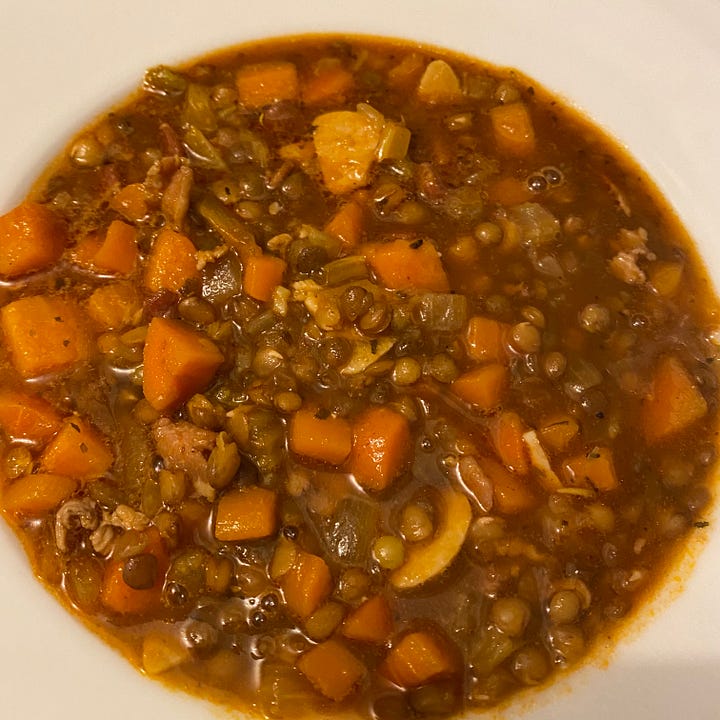
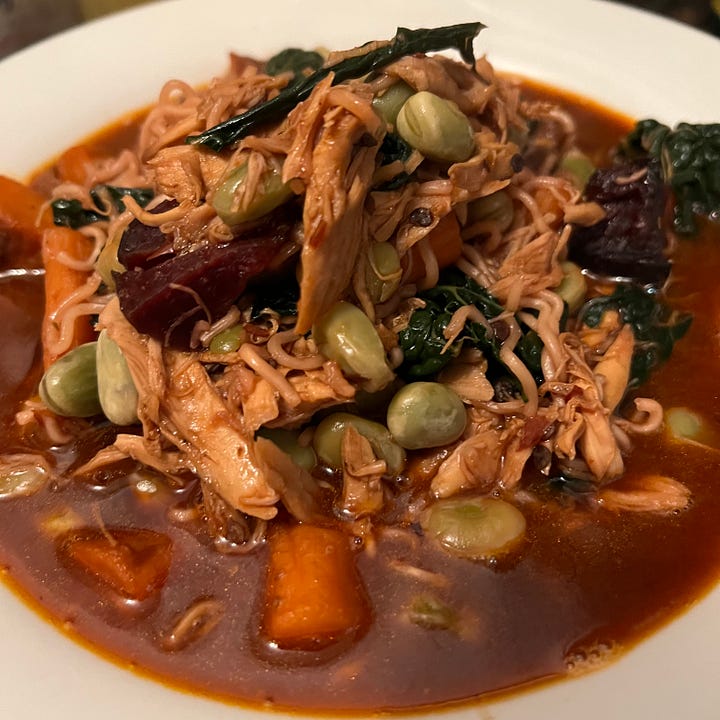
I even bought two of my favourite onion squash although I knew I would struggle to carry them and had no specific plans for their glorious red-orange hued selves, just because they sang out Autumn at me. I then threw my weekly food budget to the wind and bought perfect figs and ripe blackberries to enjoy with delicious cheeses for the full Autumn food experience. Whilst on the subject of blackberries, just a quick folkloric reminder to enjoy those fresh blackberries before the Devil does something unspeakable to them at Michaelmas (29 September).
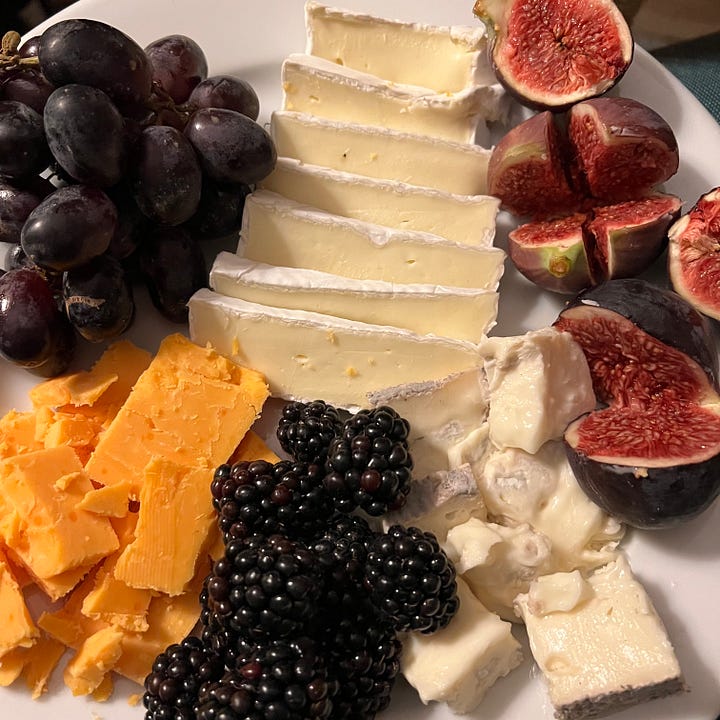
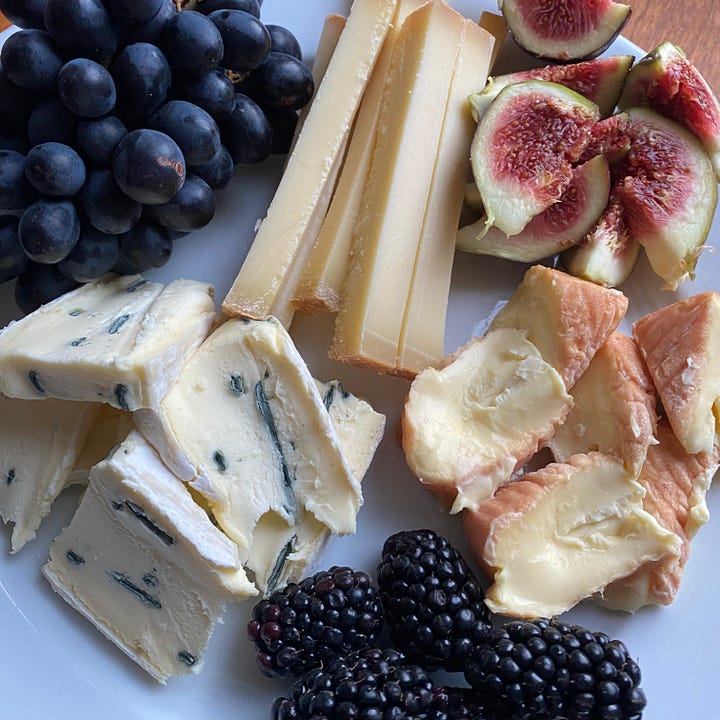
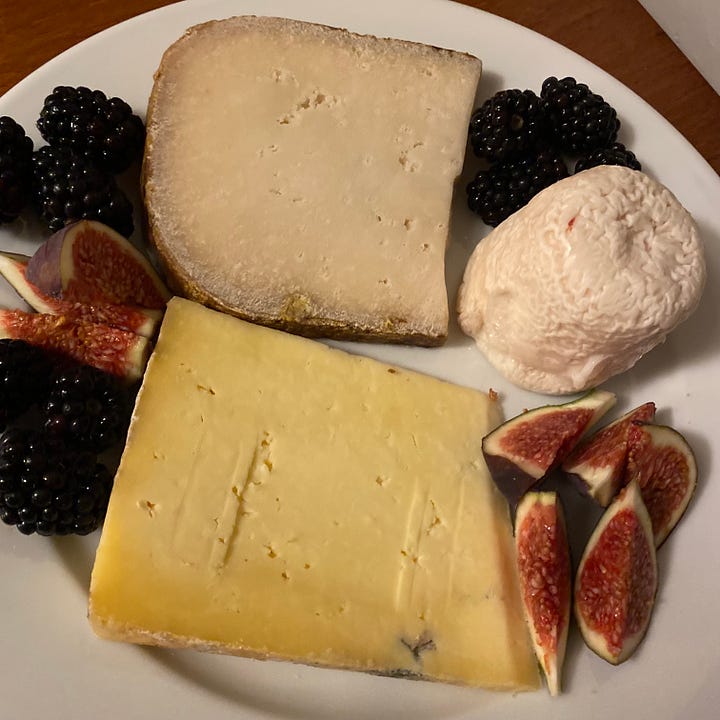
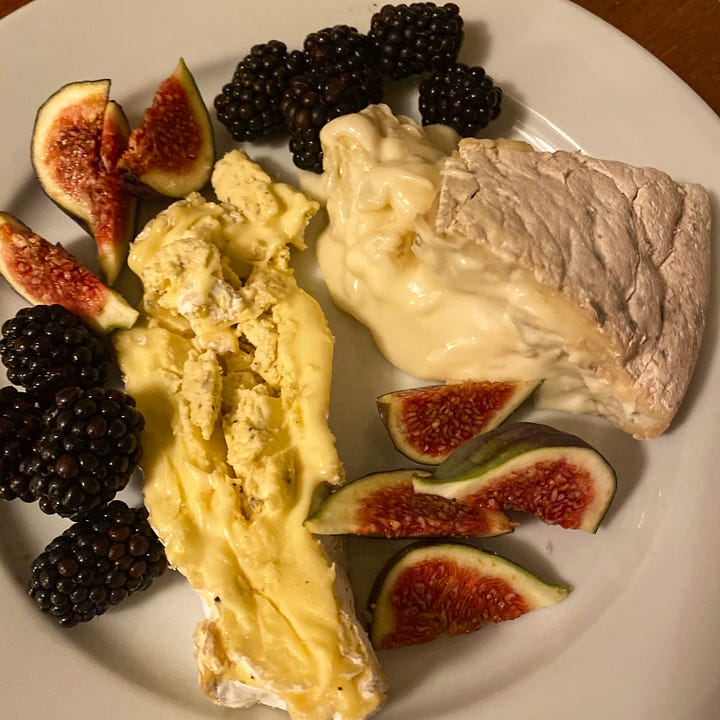
Just in case anyone is wondering, the lentil soup is from the Leon cookbook which I bought years ago and from which I have only ever made that one recipe. It was however worth it. The chicken noodle soup is essentially a chicken & veg leftovers soup with added spicy Sichuan broad bean paste and red miso paste and all my own work. We don’t have a multi-generational family recipe for soup although we do have one for trifle, which is odd when I think about it, because we eat considerably more soup than trifle. Although it must be said that we do have excellent taste in trifle.
I also let my joy in the turn of the year lead me to ridiculous purchases of cheap bangles and hoop earrings at the shops and ordering more autumn themed jewellery online. I love September,the feel of a fresh new start, the opportunity to retrieve a carefully hoarded beautiful notebook and start it guilt free. I imagine however that you are not here for my stationery addiction or my newfound love for sparkly pumpkin and toadstool earrings and would prefer me to stick to soup and folklore.
We should probably have a definition first:
“Soup. The most general of the terms which apply to liquid savoury dishes…Similar terms in other languages include the Italian zuppa, the German Suppe, Danish suppe, etc. Of the various categories of the dish which may be eaten, soup can certainly be counted among the most basic…Its role…as an appetising first course should be viewed against the historical background, in which soups with solids in them were a meal in themselves for poorer people, especially in rural areas…”
Oxford Companion to Food, Alan Davidson [Oxford University Press:Oxford] 1999 (p. 735)
Or maybe you prefer the OED version:
“A liquid food prepared by boiling, usually consisting of an extract of meat with other ingredients and seasoning.
Frequently with defining words, as fish, giblet, gravy, hare, ox-tail, pea, turtle soup; clear, thick soup; etc.”
I think the former is more appealing though.
Did you know there is actual science about why soup makes you feel good? If you received soup as a child when you were under the weather then soup is very likely to make you feel cared for even if you are only heating up your own tin of tomato. Surprisingly, you can even draw parallels between how we respond to comfort foods like soup, to the way music affects parts of the brain that trigger primitive reaction emotional response and the intellect.
Apparently our brains also make a connection between physical warmth and social warmth (the experience of feeling connected to others). Studies suggest that eating hot soup or even just holding a warm cup of it may increase positive feelings toward others including those who you may perceive as culturally different to yourself. So soup essentially makes you feel loved and more likely to have gentler, kinder feelings towards other people. That's a lot to ask of something you can buy in powder form, but may be why even just the smell of soup is cheering.
I have shared my favourite soup story in a previous letter plus some excellent soup based facts but I have an excellent alternative today for you. The following is a Sufi tale all about the obligations and reality of hospitality:
One evening Nasrudin Hodja and his wife were just sitting down to dinner when there came a knock on the door. The Hodja opened the door to find his good friend Hassan from the next village standing on the doorstep. In Hassan’s hands was a fine large duck.
“Hodja,” said Hassan, “I have brought you a gift.” And he handed the duck to the Hodja.
This was indeed a fine gift. “Come in, come in!” said the Hodja. “We will cook the duck.. We will have a feast.”
And they did. The Hodja’s wife was a very fine cook. The duck and all that went with it was delicious. The Hodja told stories. Hassan laughed. And when Hassan had gone home, the Hodja was pleased to be able to say to his wife, “There is plenty of duck and plenty of rice left. We will have duck pilaf tomorrow.”
But the next evening, just as they were about to sit down to this fine meal, there was a knock at the door. When the Hodja opened the door, there stood a man he recognized as a neighbour of Hassan’s. The Hodja observed that he carried nothing in his hands.
“Greetings, Hodja,” he said. “I am a friend of Hassan from the village.”
Now, the Hodja knew the custom of hospitality. “Come in,” he said. “We were just about to eat our evening meal.”
The meal was very good, for the Hodja’s wife was indeed a good cook, but the Hodja did not tell quite so many stories. There was not as much laughter and the guest left soon after dinner.
The Hodja looked at the platters. “There are still the bones of the duck,” he said, “and plenty of rice and vegetables to make a fine soup.”
All the next day the Hodja’s house smelled of the wonderful soup that was cooking, and in the evening the Hodja and his wife sat down to eat it with good appetites. But just as they picked up their spoons, there was a knock at the door.
The Hodja opened the door, and found on the doorstep a man who looked faintly familiar. “I am a friend of the friend of Hassan from the village,” he said in a friendly voice.
The Hodja thought of how he had hoped to eat two bowls of that good soup which the man on the doorstep appeared to be smelling with pleasure. However, hospitality is a duty: so he said, “Come in. We were just about to eat our soup.”
The guest appeared to enjoy the soup very much, but the Hodja was unusually quiet and he did not object when the man left as soon as he had eaten. He looked into the soup pot and found one large spoonful of soup. “Tomorrow,” he said, “I will prepare the evening meal. I will take care of everything.”
The next day there were no good smells of cooking in the Hodja’s house and the Hodja and his wife did not sit down to eat at their accustomed time. But there came a knock on the door.
The Hodja flung open the door. Standing on the doorstep he saw a stranger, someone he had never seen before. But the man was smiling. “I am a friend of the friend of the friend of your friend Hassan,” he said.
“Indeed,” said the Hodja. “Well, you must come in and share my meal.”
“I would like that very much,” said the stranger. So the Hodja led him to the table. The man sniffed the air.
“Don’t worry,” said the Hodja. “I was just going to fetch the food.” He went into the kitchen and scooped the spoonful of soup from the bottom of the pot. He carefully divided it between two bowls, filled each bowl up with hot water from the kettle, and carried the bowls to the table. He set one in front of the stranger and one in front of himself. Then he sat down and smiled happily at the man.
The man gazed into his bowl. It contained a clear liquid with two grains of rice and a shred of carrot floating in it.
The Hodja spoke: “O friend of the friend of the friend of my friend Hassan, here is the soup of the soup of the soup of the duck.”
The next night the Hodja and his wife sat down to eat alone, in peace.
This tale was adapted from ‘Soup of the Soup’ from Tales for an Unknown City: Stories from One Thousand and One Friday nights of Storytelling, Montreal and Kingston collected by Dan Yashinsky.
I hope you enjoyed it. There is just enough time before I must leave you to introduce a vintage remedy and recipe.
Have you heard of the Swoons? Doesn’t it have a gentler feel to it than a fainting fit? It is what any sensible person would do when presented with unpalatable facts too early in the day but unfortunately is tricky to fit into our busy modern schedules so it’s useful to have a remedy available should you need one. This is from Modern Domestic Cookery and Useful Receipts from 1815 by Elizabeth Hammond
Our recipe title contains a French derogatory swear word and there is no getting around it but we’ve all been eating pasta puttanesca for years so I don’t see why that should necessarily get in its way. I can’t trace any other use of the recipe title, but essentially it’s a recipe for sweet fritters from The Ladies’ Assistant for Regulating and Supplying the Table by Charlotte Mason from 1786.
I must now bring this letter to a close and return to working on my upcoming talk about food and the role it plays in funerary rituals and death as well as working on some eerie, ghostly tales for the October podcast but in please don’t hesitate to get in touch via the comments or via any of my social media profiles/my website . If you have enjoyed this and would like to read further such nonsense and have not yet subscribed, please don’t hesitate to subscribe for free at the button below. You’d be very welcome and it would be a joy to write to you.

